Lost and Found at Sea
Wayward songbirds, ambitious dragonflies, a tiny island and its wild things
HERE ON MONHEGAN ISLAND, 10 miles out to sea off the coast of Maine, the north winds deliver a gentle rain of songbirds: warblers and vireos, thrushes and sparrows, orioles and tanagers. They drop from the skies at dawn like confetti — or like manna from heaven.
In the grace of their migrations, in the gentle flashes of their feathers, these songbirds are among the most vivid expressions of life in motion. Or the most plaintive — because some of the birds, like some of us, are lost here at sea.
Most migrating songbirds take routes overland by night. But some, particularly young of the year making their very first journey, fly off-course in the dark only to find themselves at dawn over the Gulf of Maine. And yet below are safe harbors. At islands like Monhegan, a rocky outcrop and melting-pot community about 1.5 miles long and a half-mile wide, the songbirds descend to feed on fruits and insects, to regroup, and to unwittingly be seen by besotted human beings. I am among the birdwatchers who welcome the castaways every autumn.
Or note their absence.
Those of us visiting Monhegan over the decades now notice fewer migrating songbirds. We could cite studies documenting birds in decline owing mostly to the acts of humanity. But we don’t need studies. We know loss when we see it. Year after year we seek the lost birds of Monhegan.
The good news is that most of these songbirds, after a few days on the island, do indeed reorient themselves and get back on route toward the tropics. Their temporary misfortune here is our ephemeral pleasure.
And yet here is another irony of nature: even as the wild around us suffers, or even as we ourselves retreat from what’s wild, if we are able and fortunate enough to merely observe, nature usually has something else to offer us — from the rare to the prosaic.
The north winds have been stingy at Monhegan so far this autumn — birds are scarce. So as I await shifting winds and songbirds who’ve lost their way, I’m finding my own way among flowers and butterflies, beneath magnificent skies, and in the company of a dragonfly that migrates like an albatross across oceans.
Because I would rather be out among them all at the moment (can you blame me?), I’ll leave you now with a few images of what I’m seeing here at sea. Onward.
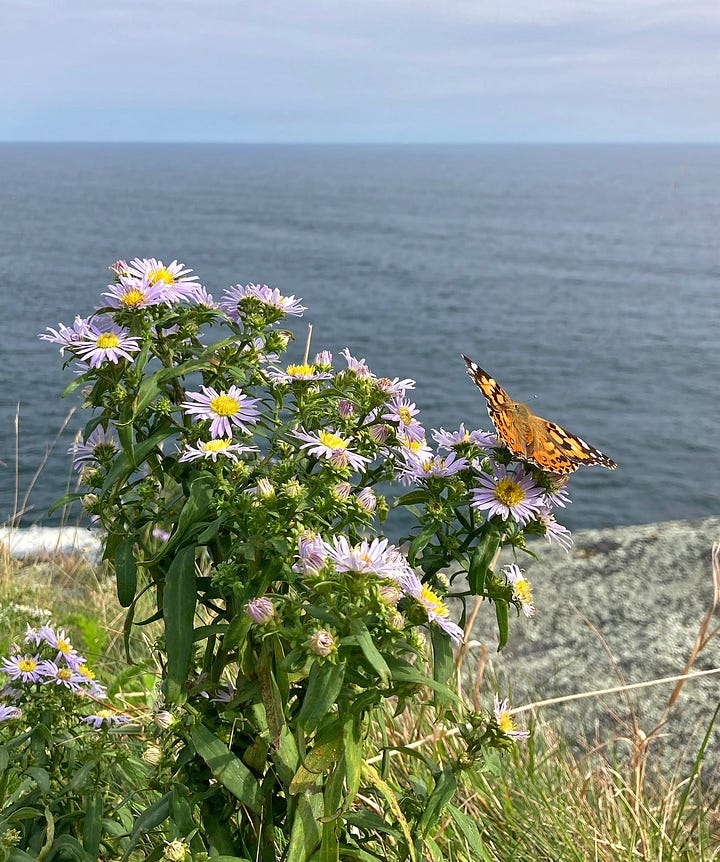
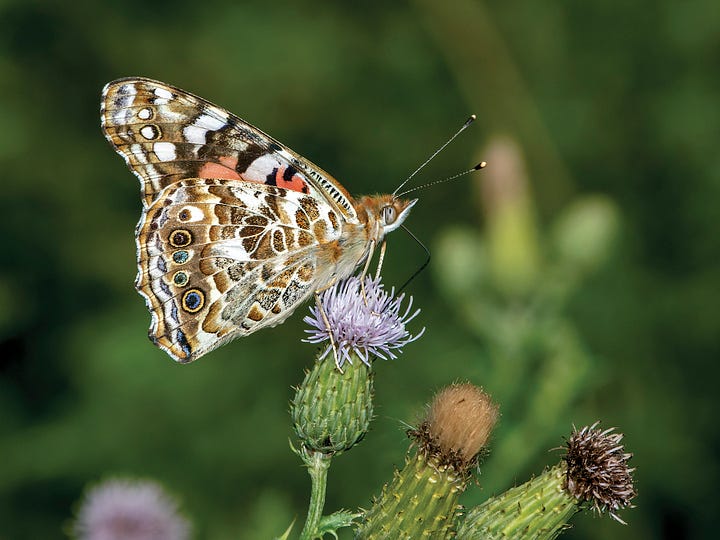
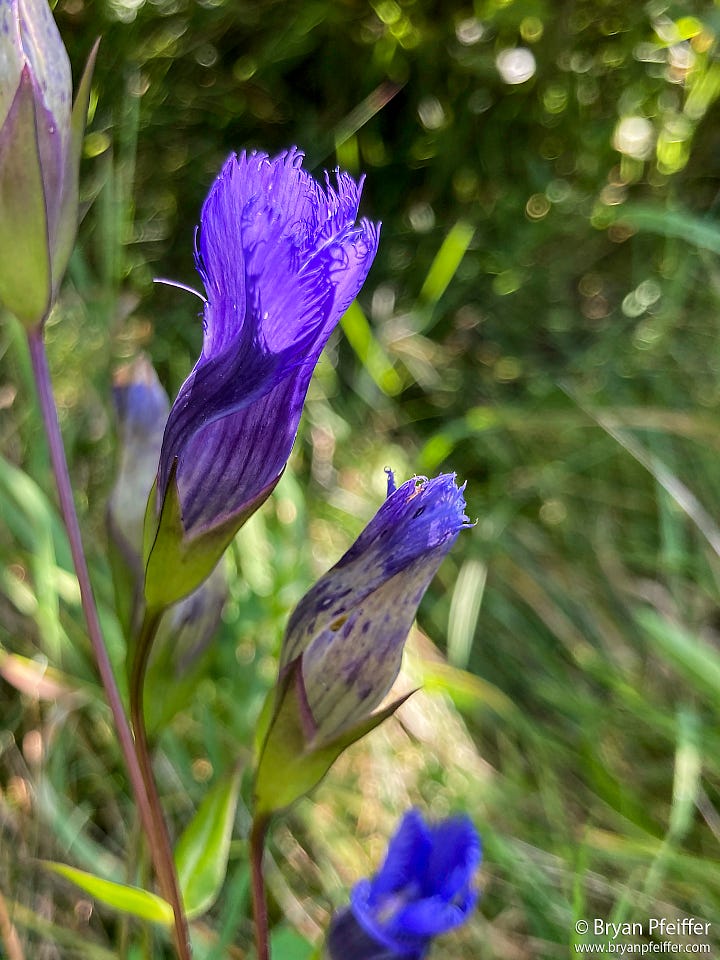
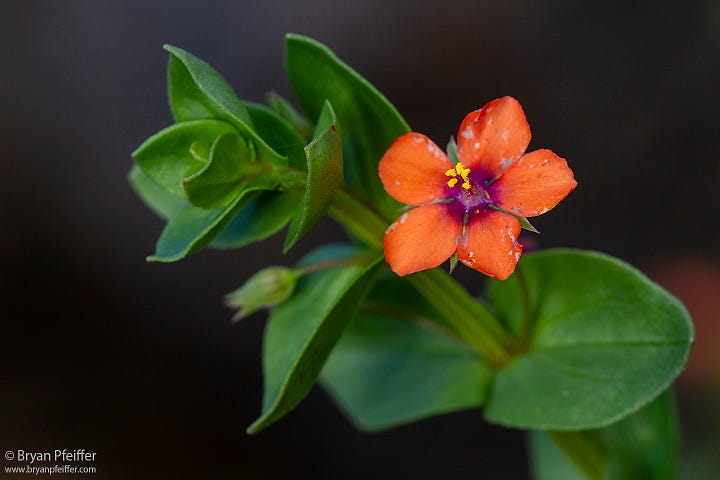


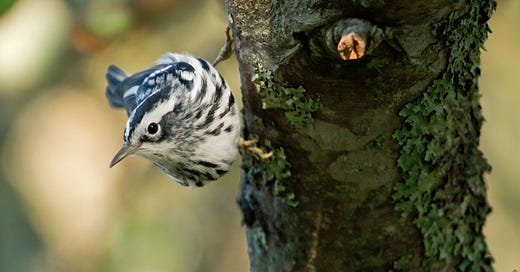





So that's what they mean when they say 'Gentian blue'. One learns and lives.
Do the lower numbers of birds mean that lesser numbers are losing their course? I know it's a vain hope though.
Another beautiful post. Thank you for bringing us along on your journeys and sharing these magical moments with us.